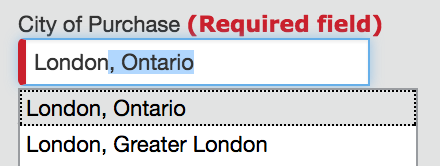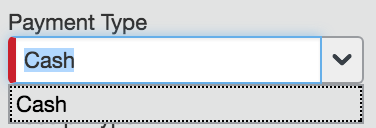There's a magnificent twitter account called Sean's Work Computer. It's a record, in screenshots, of the trials of dealing with a bad corporate IT environment. The account's bio is "Not an official account of the Government of Canada // Pas un compte officiel du Gouvernement du Canada."
I have a similar collection of screenshots because I'm trying to work out how to capture the smell of bad software. Not terrible software, not stuff that won't load or might take down a network, but the stuff that just adds tiny increments of unnecessary friction to every transaction.
Because you sit in meetings and people tell you about the new expenses system that you're going to get and you just start to sniff that bad smell. But no one else is smelling it and you feel like such a complainer pointing it out. Software is hard and everyone's trying their best and it's better than doing it with a spreadsheet and it's built into the corporate IT deal so we have to use it, really, but you just want to say CAN NO ONE ELSE SMELL THIS? This is going to drive us INSANE.
For instance, you might be asked to enter a City of Purchase when you incur an expense. (Which is odd in itself when many of your expenses are on Amazon. What city is that? And what if you're in, say, a town? Anyway, never mind.)
And so you type London in the dropdown and the first thing that pops up is London, Ontario. Hard to know why, it doesn't seem to be alphabetical, but it's very easy to miss the fact that you've done this. I imagine the world is going to end up with more transactions being recorded in Canada than you'd imagine.

I'm not arguing that London, Ontario shouldn't be on the list. Just that maybe there should be a way of defaulting to the country that the system already knows you're in. Or something. There are ways of doing this. I've seen them.
Or, for instance:

You have a Payment Type dropdown. It only offers 'Cash' as an option and if you type anything else in that box it just changes it to 'Cash' when you move to the next item. Honestly, I don't use that much cash.
You could tell it was going to be like this from the first moment it was mentioned and yet here it is. I can't work out why. I think it must be because the friction isn't recordable, it doesn't directly impact the balance sheet in the same way that the deal with SAP does. It just makes everyone's lives slightly harder, their morale slightly worse and their likelihood of leaving slightly higher. And that's hard to measure.
Maybe Sean has the right idea.

